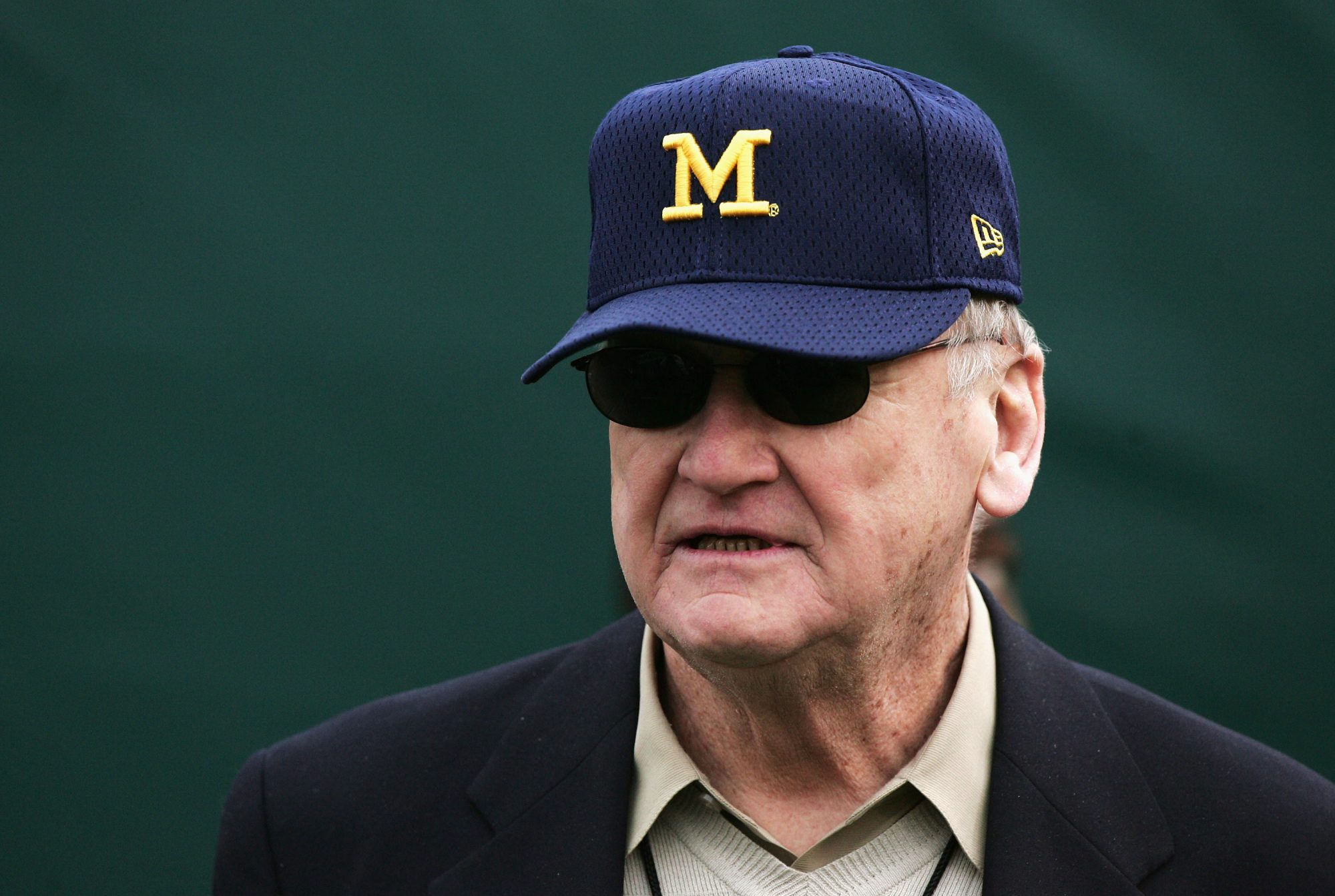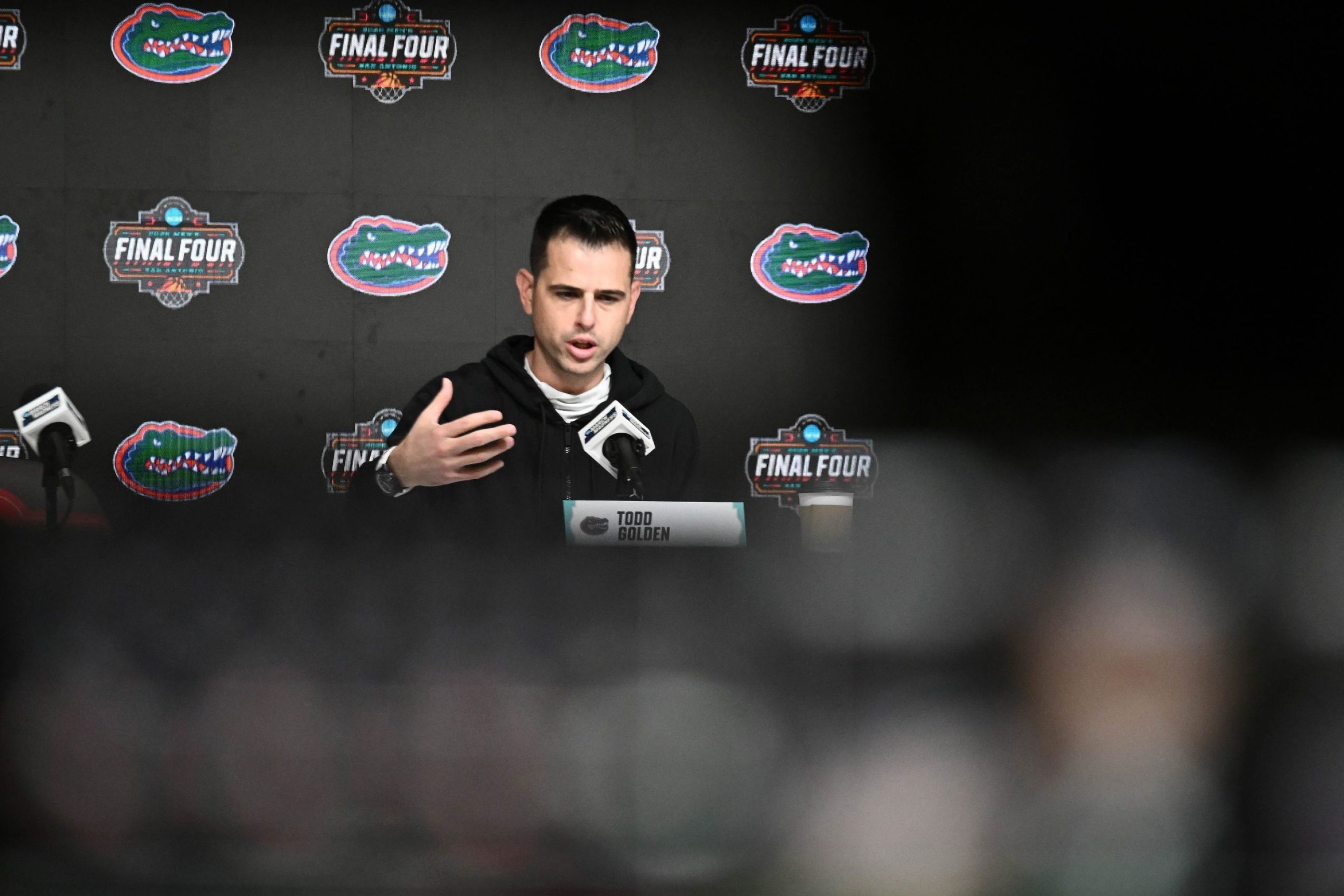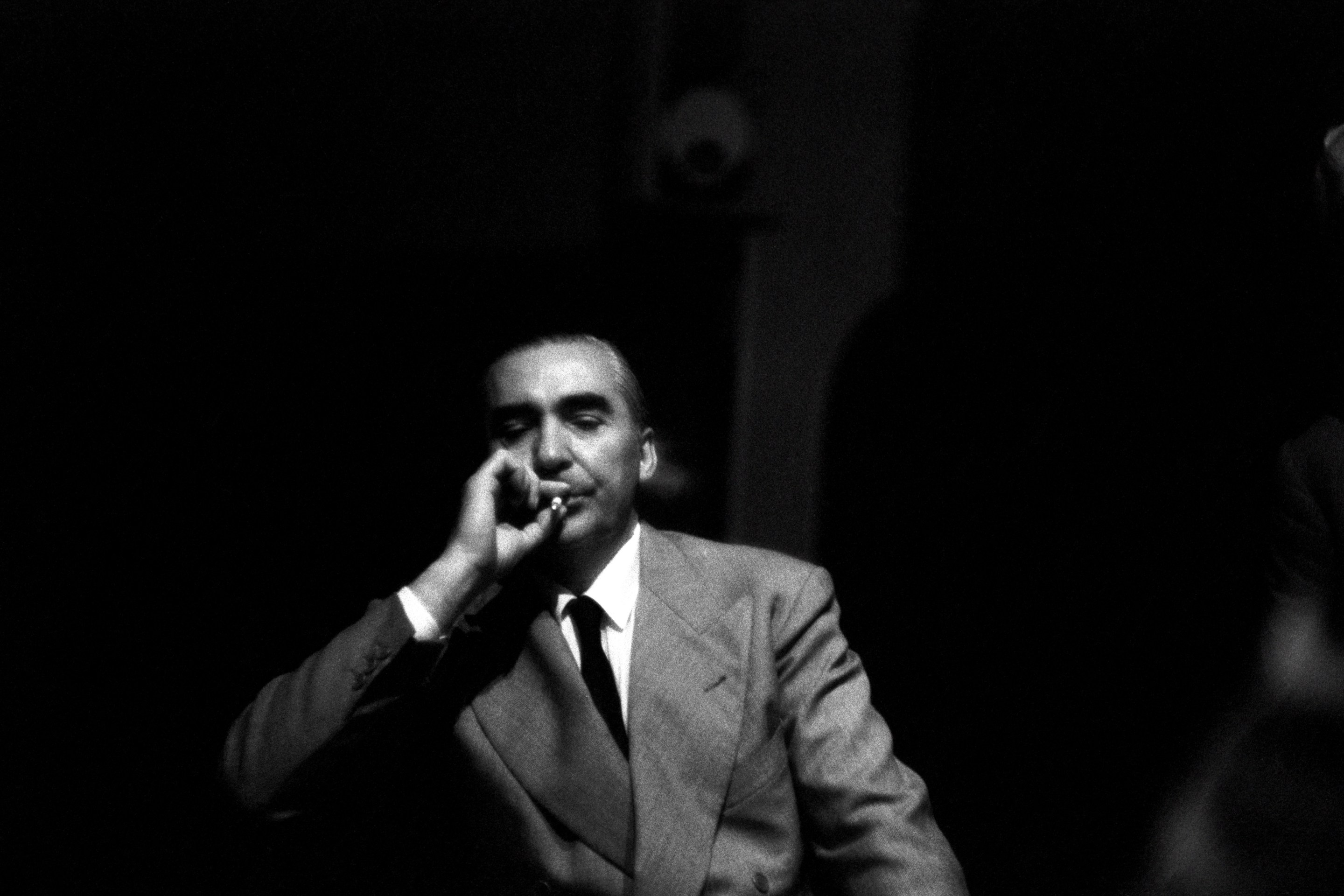All the way back in March 2020, the University of Michigan hired the law firm WilmerHale to investigate allegations of sexual misconduct against former school doctor Robert Anderson, who worked at Michigan from 1966 until 2003. Anderson, who died in 2008, became widely known after a former wrestler named Tad Deluca wrote a letter in 2018 to current Michigan athletic director Warde Manuel sharing the story of his abuse by Anderson in the 1970s. That letter eventually led to a police investigation (since closed without any charges), hundreds of civil lawsuits filed against the University, and demands for answers, which this investigation tried to provide. After 14 months spent interviewing more than 300 former patients and over 200 former employees, the firm released their report on Tuesday, which you can read in full here.
The report found that Anderson "engaged in a pervasive, decades-long pattern of sexual misconduct" throughout his 37 years at the university. That misconduct included providing unnecessary hernia and rectal exams to patients seeking treatment for unrelated issues, manually stimulating some male patients until they ejaculated, and providing medical services in exchange for sexual favors. As a result of Anderson's abuse, the report says, some athletes quit their teams, while others sought counseling, questioned their sexuality, saw their grades drop, or left Michigan entirely.
"The trauma that Dr. Anderson's misconduct caused persists to this day," the report says.
In addition, the investigation found that Michigan "received contemporaneous information about Dr. Anderson’s misconduct from multiple sources" as far back as the 1970s, and that rumors or jokes about his exams were widespread among athletes. It names several university employees who allegedly failed to take appropriate actions after hearing of Anderson's abuse in one way or another—including longtime athletic director Don Canham, former wrestling coach Bill Johannesen, former vice president of student services Thomas Easthope, and current head athletic trainer Paul Schmidt.
"Dr. Anderson’s misconduct may have been detected earlier and brought to an end if they had considered, understood, investigated, or elevated what they heard," the report says.
All living athletic department employees, including Johannesen and Schmidt, denied receiving any complaints about Anderson's abuse. Easthope, who died this year, told police that he fired Anderson after getting complaints in the late 1970s, but contemporaneous documents found by the investigation prove this to be false.
By far the most recognizable name on the list of those who the report says might have failed to stop Anderson is Bo Schembechler, who won over a dozen Big Ten titles in 21 seasons as Michigan's football coach and then briefly served as athletic director from 1988 until 1990 before leaving to work for the Detroit Tigers. Schembechler, who died in 2006, is revered by the university in general and the football program in particular—his statue sits prominently outside his namesake hall among all the major sports facilities, and his 1983 "The Team" speech as well as his phrase, "Those who stay will be champions," remain key parts of Michigan football's branding.
While there is no documentation that corroborates them, the investigation collected several accounts from former athletes who say Schembechler failed to act when he should have. Here are the instances in the report that name the legendary coach among the many people who could have helped end Anderson's abuse if he had done more or understood more thoroughly what was happening at the school.
—A member of the football team told us that Dr. Anderson gave him a rectal examination and fondled his testicles during a (Preparticipation Physical Evaluation) in 1976. The student athlete told us he informed Coach Bo Schembechler that he did not want to receive any future physicals from Dr. Anderson and that “things were going down there that weren’t right.” According to the student athlete, Mr. Schembechler explained that annual PPEs were required to play football at the University. The patient continued to see Dr. Anderson and made no further reports about Dr. Anderson’s misconduct. Mr. Schembechler is deceased. The same student athlete told us that his position coach used the threat of an examination with Dr. Anderson as a motivational tool. We interviewed the coach, who denied the allegation.—A member of the football team in the late 1970s told (U-M Division of Public Safety and Security) that he received a genital examination from Dr. Anderson, who fondled his testicles, and a rectal examination, during which the student athlete pushed Dr. Anderson’s hand away. The student athlete told DPSS that he asked Mr. Schembechler “soon” after the exam, “What’s up with the finger in the butt treatment by Dr. Anderson?” According to the student athlete, Mr. Schembechler told him to “toughen up.” The student athlete told DPSS that “you do not mess with Bo, and the matter was dropped.” The student athlete, who is represented by counsel, declined our interview request.—Another student athlete told us Dr. Anderson conducted genital and rectal examinations during a PPE in the fall of 1982. The student athlete told us that during the examination Dr. Anderson “play[ed]” with the patient’s penis and made comments about its size. Following the examination, the student athlete told us he informed Mr. Schembechler that Dr. Anderson had “mess[ed]” with his penis and that he did not “agree” with the type of physical examination that Dr. Anderson performed. Mr. Schembechler reportedly told the student athlete that he would look into it, but the student athlete never heard anything further about it. The student athlete continued to see Dr. Anderson but did not raise the matter again, fearing that doing so could jeopardize his scholarship.
—A student athlete alleges that Mr. Schembechler sent him to Dr. Anderson for migraines in the early 1980s. On at least three occasions, the student athlete alleges, Dr. Anderson gave the patient a digital rectal examination. The student athlete allegedly told Mr. Schembechler, who instructed him to report the matter to Athletic Director Don Canham. The patient alleges that he did so twice, in 1982 and 1983, but Mr. Canham took no action. The student athlete’s attorney declined our request to interview his client.
As a means of preserving the independence of the investigation, the university has said it did not see this report before the general public did on Tuesday. As a result, it has yet to comment on these disturbing findings in any but the vaguest terms.
"We will thoughtfully and diligently review and assess the report's findings, conclusions, and recommendations," school president Mark Schlissel said in a statement. "And we will work to regain the trust of survivors and to assure that we foster a safe environment for our students, our employees, and our community."
The school is less than a year removed from another WilmerHale report detailing a pattern of sexual harassment by a powerful university employee—Martin Philbert, who held many titles including dean of the School of Public Health and Provost before he was fired in 2020.






